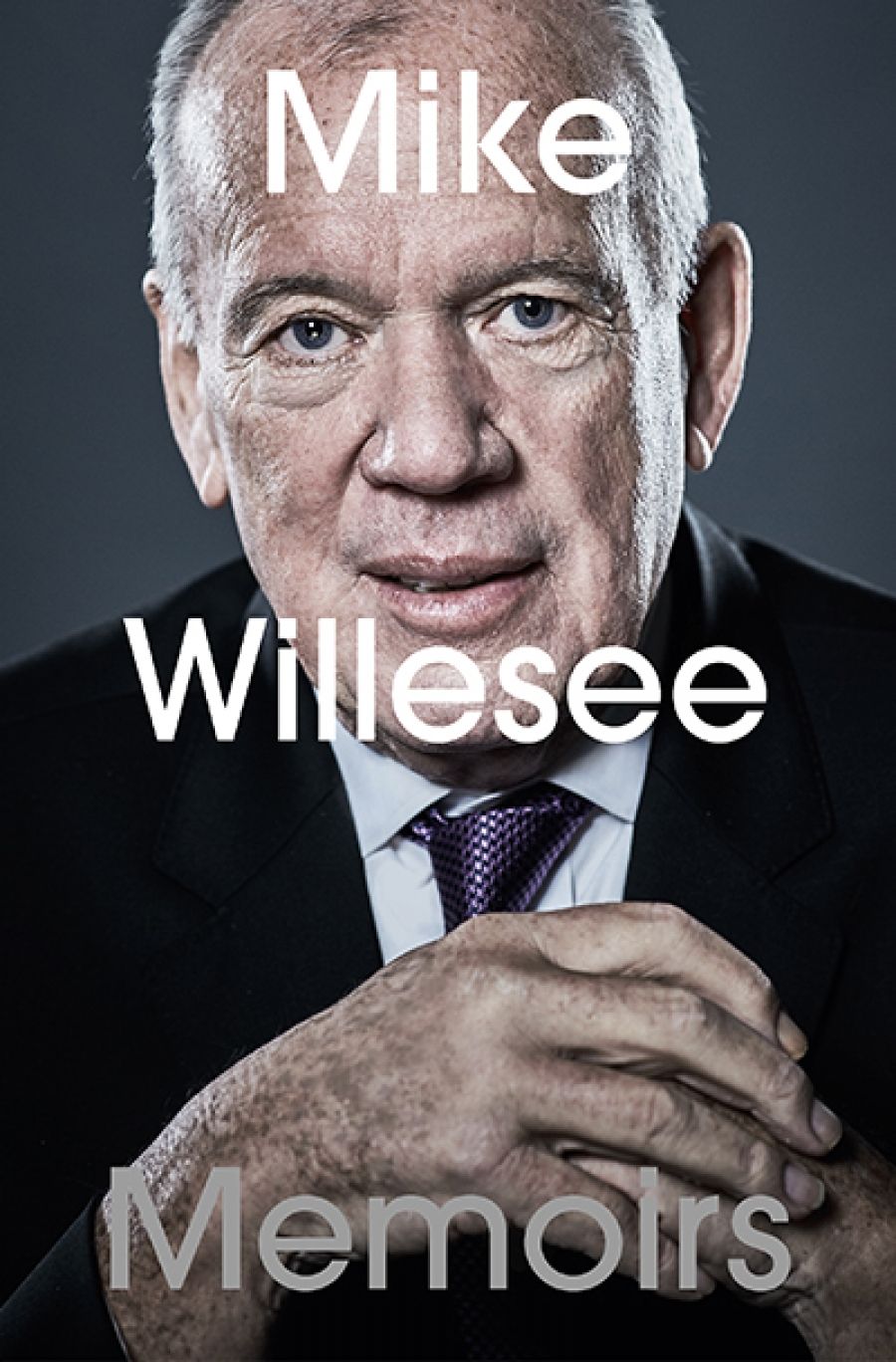
- Free Article: No
- Contents Category: Memoir
- Custom Article Title: Richard Walsh reviews 'Memoirs' by Mike Willesee
- Custom Highlight Text:
Mike Willesee has been one of the giants of the Australian media for over half a century. He was a major force in television for most of those years; but he began his life in print journalism and made a small fortune as the joint owner of 2Day FM when it was sold to the Lamb family. The memoir of such an important figure ...
- Book 1 Title: Memoirs
- Book 1 Biblio: Macmillan, $44.99 hb, 416 pp, 9781760553517
This memoir is at its strongest when it functions as the literary equivalent of a ‘Best of’ CD compilation or a television highlights reel. There are so many great moments that it is hard to know where to begin. There is the birth of This Day Tonight and Willesee’s time there as its Canberra correspondent. Next he was frontman and star reporter for Four Corners, a period during which he was almost thrown into an Indian jail and had an enigmatic relationship with a beautiful Vietnamese woman who was probably a Vietcong agent. There was his tumultuous relationship with Frank Packer, almost from when he launched A Current Affair for the Nine Network through to his ultimate sacking.
The memoirs begin with his strained relationship with his father, Don Willesee, a Western Australian senator who ultimately became Whitlam’s foreign minister, and who once dispatched the young Mike to a brutal orphanage to toughen him up; and with his mother, who confessed to him that she loved him least of all her six children. To say that he felt neglected would be an understatement; his emotional scars reveal themselves in unexpected ways throughout his narrative.
Willesee’s account of his first marriage is extraordinary. He does not provide a coherent reason as to why he married Joan Stanbury, other than that she was very beautiful; it seems like a whim that produced two fine children but from which he could find no exit door for a long time. He writes, rather cryptically, that when Joan produced their second child ‘to my great surprise – because I didn’t believe that Joan liked me – Joan decided to call our son Michael’.
In Willesee’s world there were plenty of obstacles, apart from his parents and his first wife; he appears to be an intense hater who, even now, at a time when it seems his prospect of a long life is slim, has no trouble recalling old slights. Bob Moore, his predecessor at Four Corners and no slouch as an interviewer, though not capable of a classic Willesee inquisition, told Mike at their first meeting, ‘You know, Mike, everyone thinks that they’d be good on television.’ Willesee took this to be a great insult, and seems never to have forgotten it. Mike Ramsden, a Packer trusty who was in fact a sharp newshound, is dismissed as ‘a real arselicker’. Old age has certainly not mellowed our cicerone.
The weirdest thing about this memoir is that it contains some wonderful anecdotes, which are enlivened by their small details and reconstructed conversations, and yet, for many of the most decisive and critical events in his life, Willesee confesses that he has total amnesia. In 1972 he had an almighty row with Frank Packer: ‘But suddenly – and I can’t remember how or why – everything switched around and I was allowed to do the story.’ He cannot remember who came up with the name ‘A Current Affair’, nor why his important and profitable collaboration with Paul Hogan and John Cornell ultimately terminated.
 Julia King and Mike Willesee (photograph by Rennie Ellis, National Library of Australia)
Julia King and Mike Willesee (photograph by Rennie Ellis, National Library of Australia)
In the acknowledgments, Willesee thanks ‘my daughter Amy and her husband Mark Whittaker, both established authors, for ushering my memories into this book’; perhaps they have also ushered some inconvenient memories off the page. For example, there is only one fairly anodyne mention of Germaine Greer in the text, but there is a picture of the two of them in 1972 with the bland caption ‘We became good friends.’ There is no mention of their torrid affair.
One of the problems of this book is that he confesses on page 284 that ‘the early to mid 1980s were the golden years of my life’. At that stage we are not yet three-quarters of the way to the far horizon. The landscape becomes less alluring. Of course, there are still some enticing oases – notably his interviews with Julia Gillard, James Packer, and Schapelle Corby for the Seven Network’s Sunday Night. Then he discovers God – and Pete Evans’s paleo diet. All this happens before he receives the dire diagnosis that he has advanced throat cancer. Yet, in a final twist, Lady Luck, who has never deserted him (which is not to deny in any way the prodigious talent he possesses through some kind of über-gene he shares with many of his siblings and descendants), ordains that he turns out to be one of the small percentage of patients who benefits from the miracle drug Keytruda.
The collapse of his third marriage, to make-up artist Gordana Poljak, is as mysterious as the origins of his first one. He writes: ‘The quiet young woman in dark, demure clothing was replaced by an exotic, tattoo-covered woman, wearing hot clothes and looking good. She left me in late 2010.’ The world of the emotions is a mysterious kingdom into which this intrepid and justifiably acclaimed journalist never ventures.


Comments powered by CComment